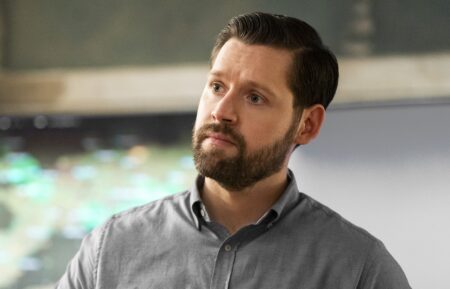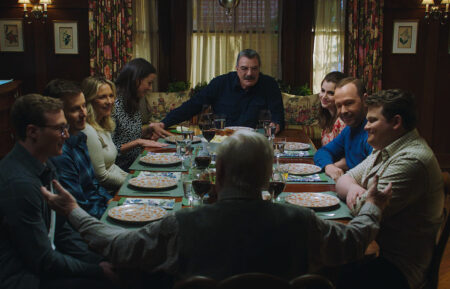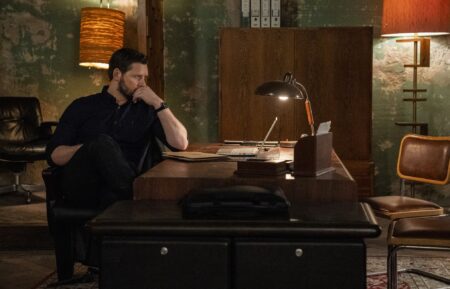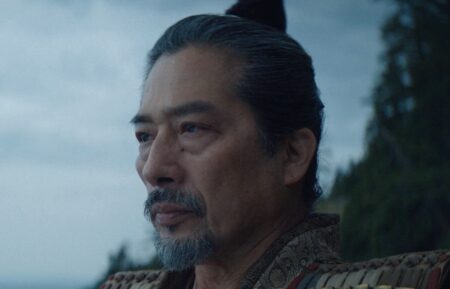CBS News’ Elizabeth Palmer on the Reality of Reporting in War Zones
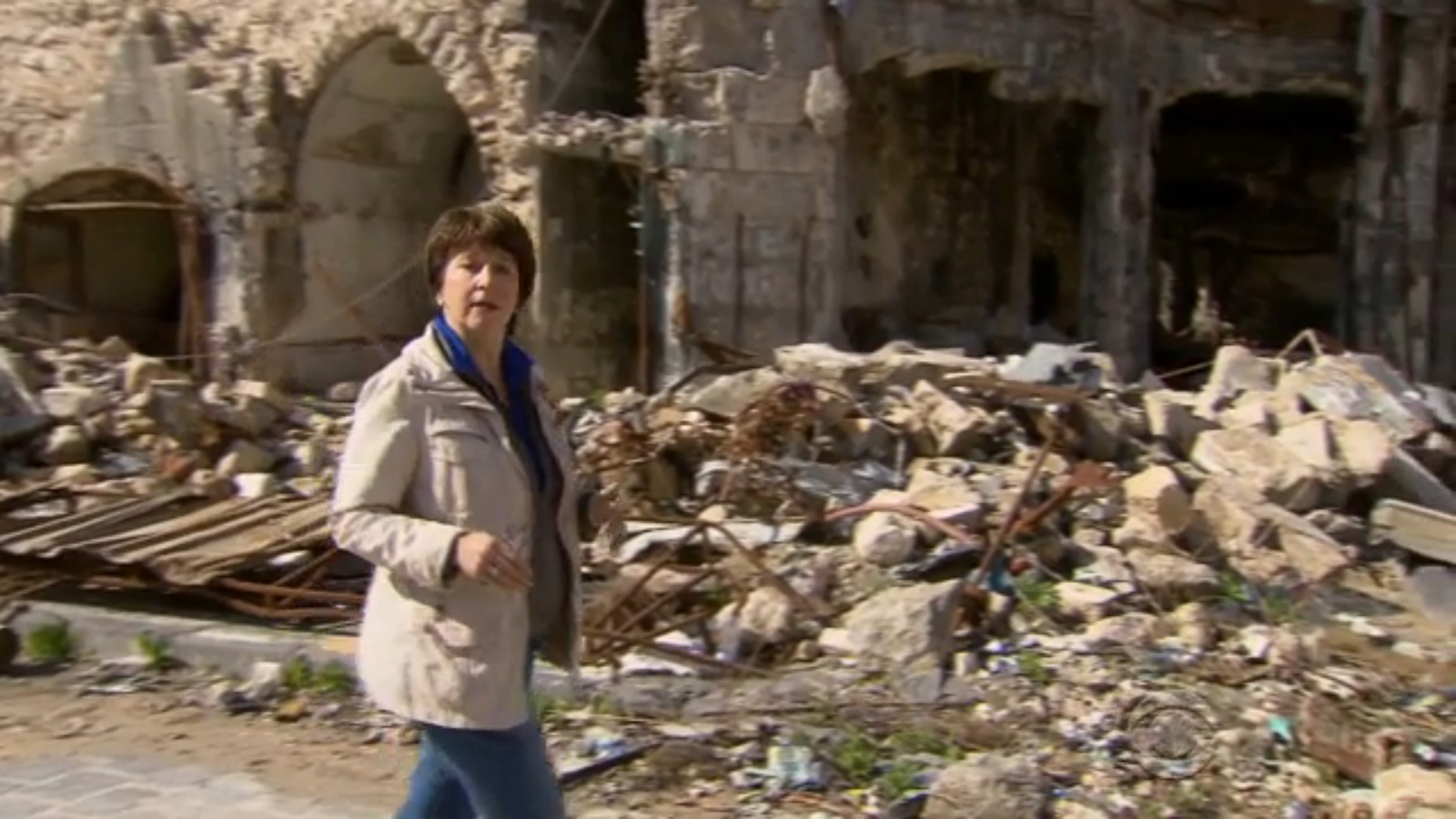
I’ve been a foreign correspondent since the early ’90s. Patrick Colburn was my inspiration. He’s a print journalist and an expert in the Middle East who was the last boy in the UK to have polio. He has difficulty walking and yet, whenever I think I’ve gone way, way out in a bad place, I usually meet Patrick coming back having been even further. He’s the gold standard.
I started working for CBS in 2000 and went into Afghanistan after 9/11, then covered the Chechen War, including the massacre of schoolchildren by Chechen separatists. I’ve always been attracted to war reporting because the rules are suspended. You see the very best of people and the very worst.
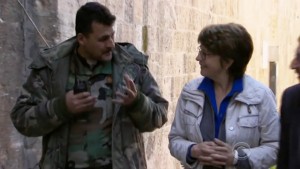
Palmer interviewing Major Ghanem, a Syrian government officer
Libya was just madness after the collapse of Qaddafi’s government [in 2011]. You could blunder into a battlefield without realizing it. But it wasn’t too dangerous to move around Benghazi, and I interviewed militia leaders, including the Islamist who was later arrested for planning the attack [on the American consulate]. We met for mango juice. It was surreal.
We got out to the American consulate building, including the room where the ambassador had died and put together the story long before I think the whole story had been told to the American public. It was frustrating to cover because the basic facts of what happened were completely obliterated by the political fight in Washington. I felt that perhaps the ambassador’s death hadn’t been planned. He was in the wrong place at the wrong time. It looked to us as if these armed groups had decided to attack the American compound and the protested [anti-muslim ] movie was an excuse. The ambassador’s death was a terrible tragic event, but I’m not persuaded that the Islamists even knew that he was there at the time.
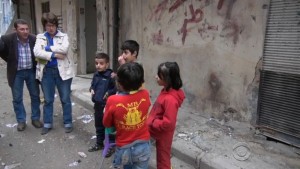
Palmer with local Aleppo children
Our scariest encounter was in Libya [in 2012]. My team and I followed local people who had chased an Islamist group to an abandoned air base and suddenly a gunfight broke out. We hit the dirt, stayed there with our heads down until there was a lull, then legged it across some fields and found shelter with a man who lived nearby. We were trapped until the next day. That was pretty terrible. It’s not the hairiest encounter, but a reminder of how danger can be invisible but still present. We were in a suburb of Damascus and several Syrian army soldiers took us to a neighborhood where we could see barrel bombs explode in the distant. One of the soldiers suddenly said, “We have to get out of her here. There are snipers.” When we reviewed our tape later, I actually heard the snap of a sniper’s bullet. It had to have been very close to where we were. They were already shooting at us.
I’m currently covering Syria. It’s very difficult to get a visa to enter, so whenever the government sees fit to grant some, we go. To stay alive, it’s essential we trust the people working for us, like our drivers. One wrong turn and we could end up in a firefight or surrounded by fighters who might kidnap us for ransom.
More women are covering wars than when I started 20 years ago. There are advantages as a woman in the Middle East. We push the limits with military personnel, because they don’t want to lay hands on us. We also have access to local women, and they’re often very good sources of information. When we went to the Pakistani compound where Bin Laden was killed we talked to the neighboring women who had been shut up in their quarters. They had been peeping through their windows and had a much more accurate recollection of what happened than the guys did. Women are very eloquent voices to speak on the terrible ravages of war because they are the one stuck having to feed the children and get the medicine and keep the households together.
There is the threat of sexual assault, of course. In Iran in 2009 I was pushing through a huge crowd at a demonstration and the whole way I had my butt and my breasts grabbed. There’s a real respect over there, but if some men think they can get away with it, they will have a grope.
Doing this work makes me so grateful for my marriage and my children [age 17 and 26]. I feel lucky to live in stable countries. I’m famous for being icy calm in the field, but when I return home to London, for about a week I can’t get rid of a sense that something terrible will happen.
Recently I’ve been starting to feel a huge wave of dejection when I’m home and read of another massacre or attack. When I get back on the scene, however, I’m so interested in how civilians are coping and what the military strategy is that my enthusiasm hasn’t diminished one bit. And the extraordinary generosity of these people who have almost nothing continually feeds my spirit. I hope to go back to Syria. Incredibly, President Assad says he’s going to have elections next month, so I’m hoping to go back for that. —As told to Ileane Rudolph



